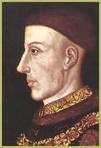Action!
Author Insights: Your books are often filled with action and adventure, what recommendations do you have for aspiring authors to improve their writing in this area?
L. J. Bonham: Accuracy, accuracy, accuracy. Action scenes and books, whether detective noir, tech-thriller, war, science fiction, or fantasy must have a basis in reality, regardless if the author’s world is modern, historical, or pure invention.
AI: Could you elaborate?
LJB: Every world, no matter how farfetched, has to have rules that govern how things happen. Soldiers, spies, guerrillas, and cops all do things in certain ways and have unique cultures. They are archetypes in their own right. Stories that work well set the character’s actions in a believable framework. “Starship Troopers,” by Robert Heinlein, for example, immerses the reader in a future world that is still familiar in its texture. The Mobile Infantry depicted in the book feel real because they think, talk, and act like soldiers have since organized conflict began.
AI: So where does an author learn about military life, espionage, and law enforcement?
LJB: I just ran across a great new book on the subject called, “The Writer’s Guide to Adventurous Professions,” by Clayton Callahan and Lee Roberts.
AI: That sounds perfect.
LJB: It’s a fantastic resource book. The authors are combat veterans and police officers. Mr. Callahan in particular has worked in Army intelligence. The book is fun and a quick read, but authors will want to keep it handy for reference. If you want your action scenes to have impact, you should get this book.
L. J. Bonham: Accuracy, accuracy, accuracy. Action scenes and books, whether detective noir, tech-thriller, war, science fiction, or fantasy must have a basis in reality, regardless if the author’s world is modern, historical, or pure invention.
AI: Could you elaborate?
LJB: Every world, no matter how farfetched, has to have rules that govern how things happen. Soldiers, spies, guerrillas, and cops all do things in certain ways and have unique cultures. They are archetypes in their own right. Stories that work well set the character’s actions in a believable framework. “Starship Troopers,” by Robert Heinlein, for example, immerses the reader in a future world that is still familiar in its texture. The Mobile Infantry depicted in the book feel real because they think, talk, and act like soldiers have since organized conflict began.
AI: So where does an author learn about military life, espionage, and law enforcement?
LJB: I just ran across a great new book on the subject called, “The Writer’s Guide to Adventurous Professions,” by Clayton Callahan and Lee Roberts.
AI: That sounds perfect.
LJB: It’s a fantastic resource book. The authors are combat veterans and police officers. Mr. Callahan in particular has worked in Army intelligence. The book is fun and a quick read, but authors will want to keep it handy for reference. If you want your action scenes to have impact, you should get this book.
Published on June 28, 2014 14:54
•
Tags:
action, adventure, cops, espionage, heinlein, james-bond, military-culture, police-procedure, soldiers, spies, starship-troopers, war, writing
No comments have been added yet.
Author Insights with L. J. Bonham
Find out each week what makes author L. J. Bonham's books tick and be the first to hear about exciting offers and new books from L. J.
Find out each week what makes author L. J. Bonham's books tick and be the first to hear about exciting offers and new books from L. J.
...more
- L.J. Bonham's profile
- 3 followers



